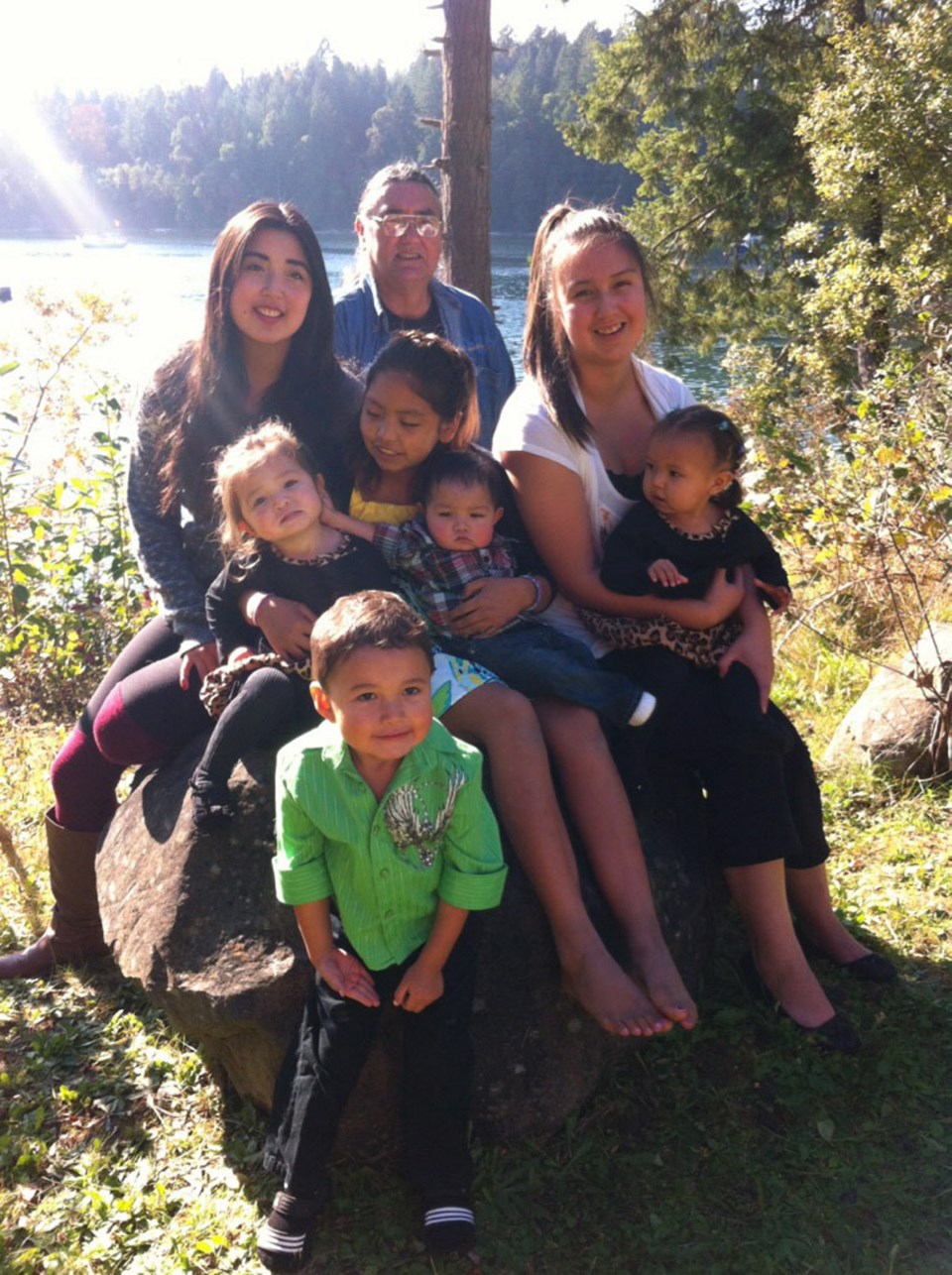Muddied and covered in cow dung, grandfather Richard Jerman was building a fence on a farm on Penelakut Island, where he has lived for 37 years, when border officials came for him.
They gave him just enough time to change his clothes before whisking him away.
“I just stood there, I couldn’t believe it,” Jerman said Thursday.
Jerman, 60, who has four children and 14 grandchildren, was removed from his First Nations reserve on Penelakut Island, about five kilometres from Chemainus, on Dec. 11. Two days later, he was released on a $500 bond and issued with an exclusion order — the lowest level removal order.
“They picked me up and said I was considered an illegal alien in this country,” said Jerman, who was born in the U.S. “I just kept thinking this is a bad dream.”
Jerman, who has never been in jail, was shackled at Victoria’s jail and as he was taken to a holding centre at Vancouver International airport before appearing before immigration officials.
His wife, Maria George, a former student in the Island’s notorious residential school, travelled to Vancouver with her two daughters, not knowing if her husband would ever return home. The apprehension of her husband churned up memories of when she was taken from her family.
“It was very traumatic,” Jerman said. “I still get the jitteries in my stomach. When it comes to my fate, it’s in the hands of immigration officials. I hope the outcome is that I can stay.”
If deported, “it would be totally devastating to me and my family and my grandkids,” he said. The proud grandfather is expecting his 15th grandchild in the new year.
Jerman was born to a Miwok Indian father from California. His mother’s background is not confirmed but she was likely part First Nations, he said. She died when he was young and he was raised by white foster parents. “I didn’t know I was native,” Jerman said. He only learned about his heritage in his teens. In school, he said, he was bullied by kids who thought he was Japanese.
At 23, Jerman met his wife, Maria George, in Seattle. The couple returned to her home on the Penelakut First Nation reserve, formerly called Kuper Island. Jerman does not have official Indian status and did not apply for Canadian citizenship.
Jerman does, however, have a social insurance number, a driver’s licence, a health card and has travelled back and forth across the United States without issue. “I’ve never been in trouble or had a conflict with crossing the border,” he said.
He assumed that under the Constitution Act and the United Nations Declaration on the Rights of Indigenous Peoples, First Nations have rights to travel and trade freely across the Canada-U.S. border.
Victoria immigration lawyer Peter Golden said last week’s abrupt apprehension is an example of recent more aggressive removals of foreign nationals by border officials.
Jerman could have applied for permanent residency in Canada, based on his spouse’s residency, had he known he was in Canada illegally, his lawyer said.
“He’s had the same phone number for 37 years and travelled, including to the United States and back,” Golden said.
“It’s not as if he’s been hiding. He figured he was here legitimately and why would he flee.”
A pre-removal risk assessment, which allows the applicant to remain in Canada another 30 days while it’s completed and reviewed by immigration officials, is being done.
“As soon as that decision is made, he’s removable from Canada,” Golden said.
Meanwhile, Golden is preparing an application for permanent residency for Jerman based on humanitarian and compassionate grounds under a section of the Immigration and Refugee Protection Act.
Key factors for acceptance include establishment in Canada, the effect of the removal on family members and the best interests of any children involved.
“If one looks at the key factors, he has a very strong application,” Golden said.



